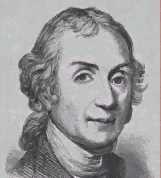

1.) Man is a creature whose distinguishing excellence is the reason which God has given him, no less than his capacity for moral virtues. The perfection of man, therefore, must consist as well in the improvement of his reason, and the acquisition of knowledge, as in the attainment of all moral virtue. We should then always keep our attention awake to every interesting subject of discussion; and whenever religious truth is directly concerned, imagine that we hear our Saviour himself calling out to us, and saying, ‘He that hath ears to hear, let him hear.
2.) In nature we see no bounds to our inquiries. One discovery always gives hints of many more, and brings us into a wider field of speculation. Now, why should not this be, in some measure, the case with respect to knowledge of a moral and religious kind? Is the compass of religious knowledge so small, as that any person, however imperfectly educated, may comprehend the whole, and without much trouble? This may be the notion of such as read or think but little on the subject. But of what value can such an opinion be?
3.)‘Allow your ministers the liberty that ye take for yourselves, and take no umbrage if, in consequence of giving more attention to matters of theology than you have leisure for, they should entertain opinions different from yours… it is no great hardship upon you to give them at least a dispassionate and attentive hearing. They cannot force any opinions upon you. You still have the power of judging for yourselves; and without hearing you cannot have even the means of forming a right judgement. And where an agreement cannot be had (and few persons who really think for themselves will agree in all things), you may exercise that mutual candour, which is of more value than any agreement in speculation.’
4.)‘We are…laying gunpowder grain by grain, under the old building of error and superstition, which a single spark may hereafter inflame, so as to produce an instantaneous explosion, in consequence of which that edifice, the erection of which has been the work of ages, may be overturned in a moment, and so effectively as that same foundation can never be built upon again.’
It was such sentiments that earned Priestley the nickname, ‘Gunpowder Joe’, along with the hatred and suspicion of the religious and political establishment.